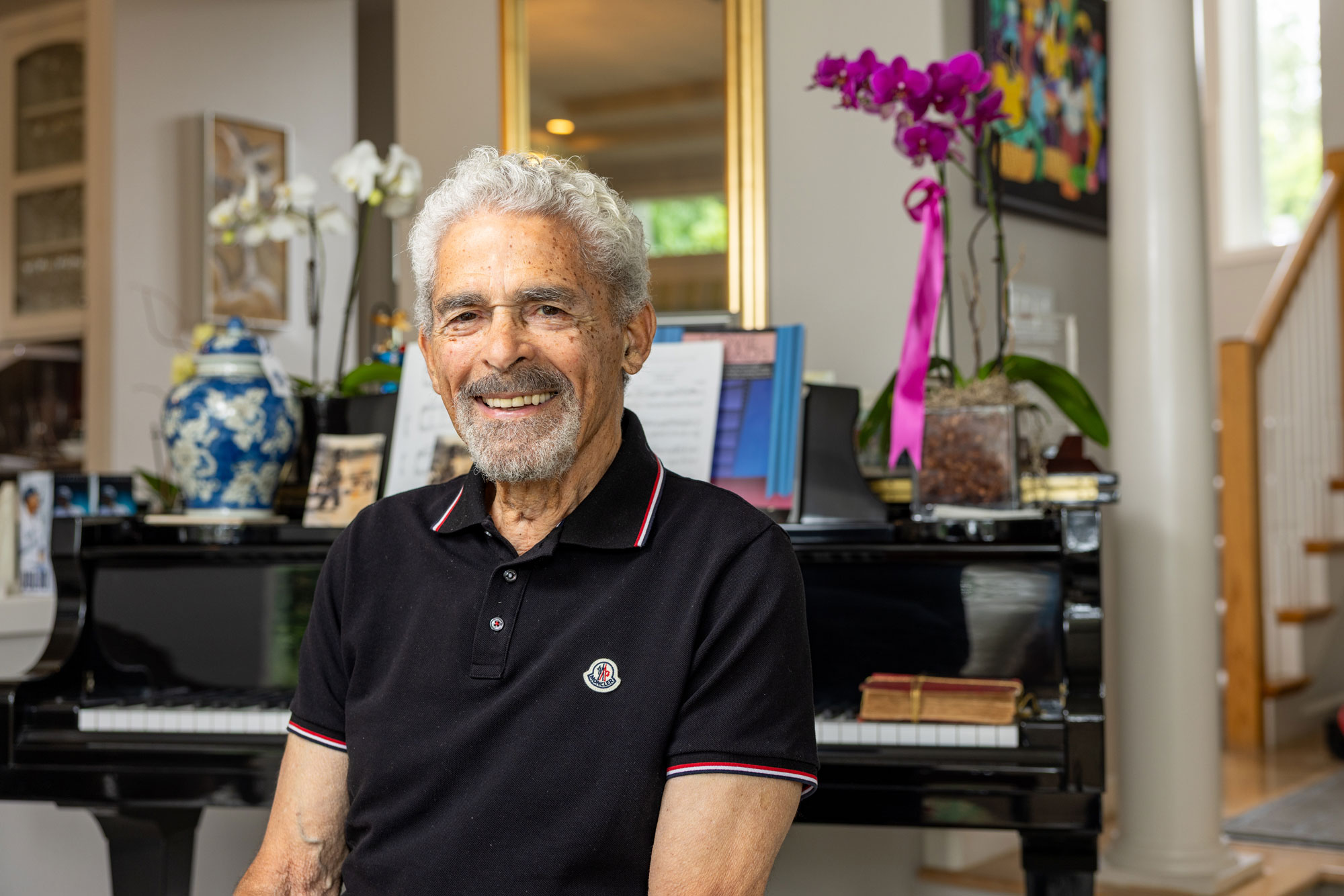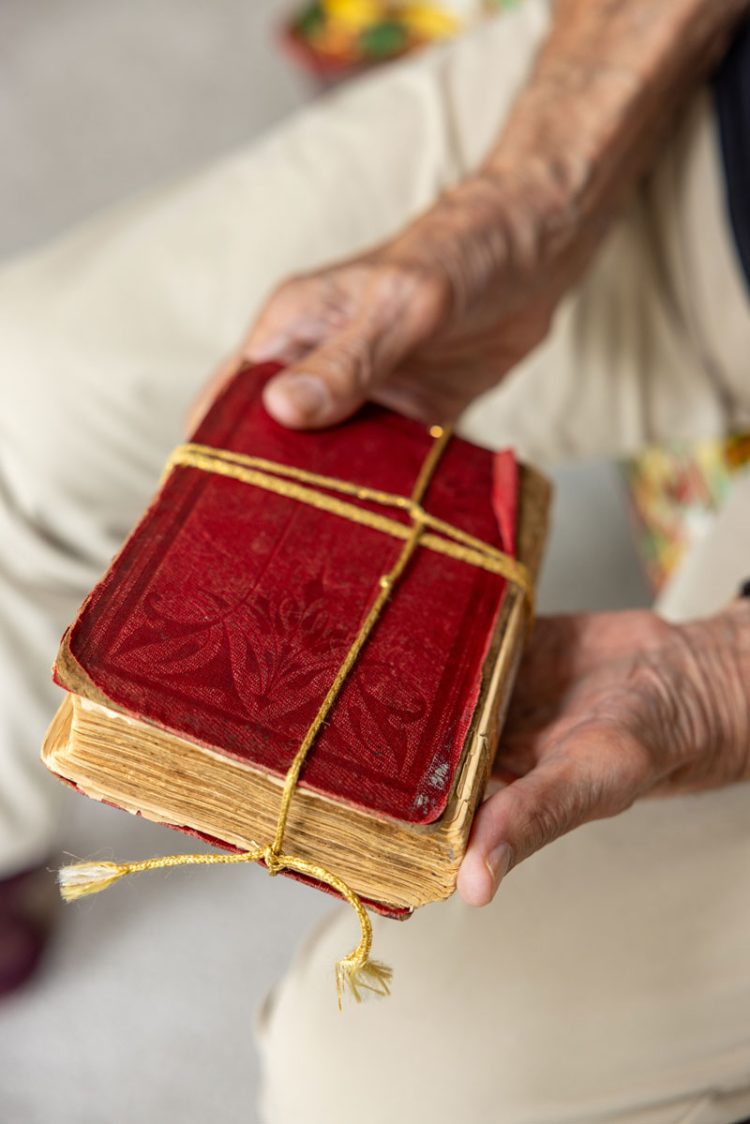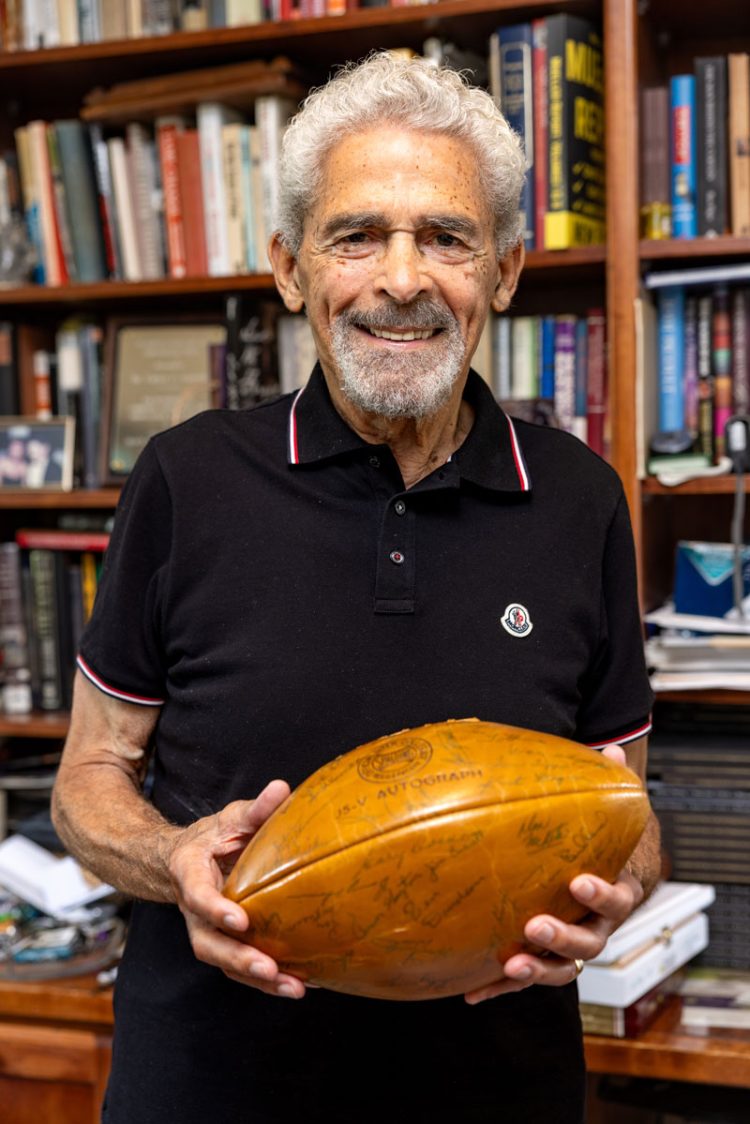Tracing history Tracing history Tracing history
Carver Gayton's activism and academic brilliance spring from a rich history of aspiration and achievement on both sides of his family.
By Hannelore Sudermann | Photos by Matt Hagen | September 2025

These days, Carver Gayton, ’60, ’72, ’76, thinks a lot about his maternal great-grandfather, Lewis Garrard Clarke. When Gayton was a child, his mother read to him and his siblings from Harriet Beecher Stowe’s account, “The Key to Uncle Tom’s Cabin. ” The author pointed out that Clarke, who had escaped enslavement in Kentucky, was the prototype for her character George Harris in her novel “Uncle Tom’s Cabin.”
Gayton first thought that Clarke’s history was simply a story shared within his family. But as he grew older, he learned much more from a distant cousin, historians and his own research. Clarke had been a conductor on the Underground Railroad and later a national figure who traveled the North speaking out against slavery. Clarke’s memoir was the first work by a former slave to be acquired by the Library of Congress and copyrighted.
“It’s kind of otherworldly,” Gayton says, adding that throughout his life, his great-grandfather has been both a presence and an inspiration. In exploring more of Clarke’s life, Gayton realized he needed to share his own story for future generations. “Carver Clark Gayton: Odyssey of a Seattle Native Son” was published this spring by Documentary Media and available through University of Washington Press.
Born in Seattle into a large, heritage-rich family, Gayton has a lineage that runs deep in the Pacific Northwest. His paternal grandfather, for example, was a civic pioneer who arrived in the city in 1889, became a respected local leader who founded several Black community organizations and served as the region’s U.S. District Court librarian.
Gayton followed in those successful footsteps. He thrived at Garfield High School, earning All-State honors in football and serving as class president. He attended the University of Washington on a football scholarship and played in the 1960 Rose Bowl. But his journey through the UW would be about much more than football.
Gayton later taught high school and coached in Seattle before becoming the first Black FBI agent from Washington state. “I could have gotten a degree from what I learned in the FBI,” he says.
After several years of federal employment around the country, Gayton returned to the UW in 1968 as its first Black full-time assistant football coach. Amid campus and team racial tensions, he recruited players and helped diversify the program. But in 1970, he resigned from the Athletics Department in protest over the suspension of several Black players. He stayed on campus, though, working as the first UW director of affirmative action programs. During this time, he also earned a Ph.D. in public administration.
Gayton began a tenure-track career at Florida State University but was soon lured back to Seattle by a position at Boeing, where he worked for 18 years in roles including corporate director of college and university relations. From 1997 to 2001, he served as the Washington state commissioner of employment security. Throughout his career, Gayton remained connected to the UW as a lecturer at the Evans School of Public Policy & Governance and through numerous volunteer roles.
In 2005, Gayton embarked on a new chapter, one that brought together his love of history and his commitment to community. He became the founding executive director of the Northwest African American Museum. Partnering with Barbara Earl Thomas, ’73, ’77, as deputy director, and Brian Carter, ’08, as education director, he helped shape the institution from the ground up. For Gayton, this wasn’t just a career move, it was a natural evolution of a lifelong pursuit, rooted in honoring the past and inspiring future generations.
Gayton’s own story goes beyond career achievements or family legacy. It’s a testament to community, learning and perseverance. From believing the schoolteacher who once told him he was smarter than he realized to watching his daughter, Cynthia, become a national figure in technology and law, to navigating personal loss, Gayton describes his path as a journey built on embracing opportunities.
“Expect nothing,” he says. “Appreciate everything.”
Carver Gayton’s new book is available through the University of Washington Press.

